Improving upon their initial efforts, Nikon has revised the Z7 platform to offer more speed, faster processing, and greater versatility without sacrificing the beloved qualities of the original camera. The sensor’s design omits the optical low-pass filter for greater detail recording capability and the sensor supports a native sensitivity range down to ISO 64 for lush, rich capture. Updated processing also yields faster speeds, including a quickened 10 fps continuous shooting rate and deeper buffer for working with moving subjects. UHD 4K 60p video is supported, too, with the option to record externally in 10-bit using N-Log or HLG (HDR) modes).
- Dual EXPEED 6 image processors offer increased buffer performance, a faster 10 fps continuous shooting rate, and noticeably reduced blackout times in the viewfinder.
- Updated autofocus now includes Eye and Face Detection for both humans and animals in the Wide-Area AF mode, for both photo and video recording.
- Timed long exposure shooting is now possible for up to 900 seconds (15 minutes) without the need of an external remote.
- Dual memory card slots offer more flexible file storage capabilities; one CFexpress Type B and one SD UHS-II slot permit overflow, segregated, and repetitive saving options.
- USB Type-C port permits in-camera charging or continuous power for on-the-go charging or extended shooting times.
- The rotation direction of the focus ring on lenses can be switched to suit one’s familiarity.
- Support for HDR (HLG) mode when recording externally gives instant HDR-suitable video files for immediate playback. N-Log is also available for enhanced control during post-production and grading, too.
- Eligible for an optional ProRes RAW upgrade, enabling the camera to output ProRes RAW footage to a compatible Atomos external recorder. This upgrade provides greater color grading flexibility with the ProRes codec along with the ability to output uncompressed 12-bit raw footage over HDMI. This upgrade will be available in early 2021.
- The SnapBridge wireless connectivity can be used to update the camera’s firmware, instead of relying on a memory card-based system of updating.
- Updated creative shooting modes include Multiple Exposure, 20 different Picture Control settings, and in-camera Timelapse recording. There is also a Focus Shift mode for recording up to 300 sequential frames with the focus position shifted between exposures for focus stacking applications.
- Compatible with optional MB-N11 Power Battery Pack for additional battery life and improved handling.
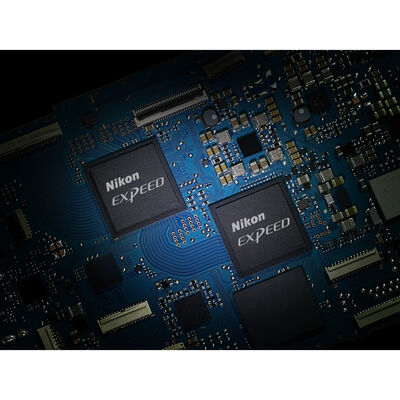
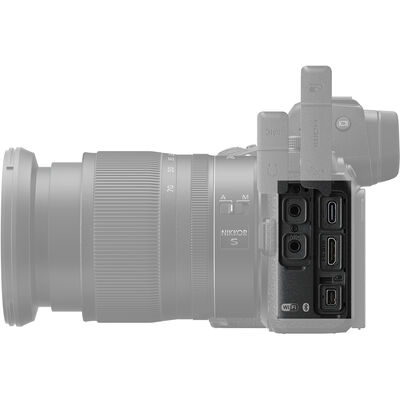
Utilizing the sensor and processor attributes for more than just still imagery, the Z7 II is also a more-than-capable multimedia camera. UHD 4K video recording is possible up to 60p and Full HD 1080p video recording is also supported at up to 120p for slow motion playback. Video files can be saved to the in-camera memory cards or as an uncompressed file to an optional external recorder via HDMI out.
Advanced video functionalities have been added with the Z7 II, including the N-Log gamma for capturing flat-looking footage that maximizes dynamic range and HLG (HDR) for recording HDR-ready footage. Other additions are the ability to output high-quality 10-bit data over HDMI and an Electronic VR function for smooth handheld shooting. Focus Peaking can be used to benefit manual focus control and a Zebra Stripes option is also available to help detect over-exposed areas within the frame. Audio recording can be handled using the built-in stereo microphone or an optional external mic can be added via the 3.5mm stereo jack for greater control over quality, and live monitoring is possible via the headphone jack.
Firmware version 1.10 unlocks UHD 4K recording at 60p and 50p frame rates and enables raw video output to Blackmagic Design Video Assist external recorders, and also improves eye-detection performance Auto-Area AF and Wide-Area AF modes.
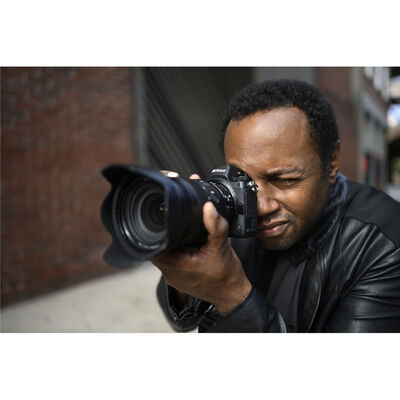
Located on the sensor is an array of 493 phase-detect autofocus points covering 90% of the image area both vertically and horizontally. This provides fast and accurate focusing for both stills and video and with a wide coverage area, subject tracking will work out to near the edges of the frame. Hybrid AF is available for video, which will automatically switch between phase- and contrast-detect systems to provide smooth focus during shooting. Additionally, the latest NIKKOR Z lenses are optimized for silent operation.
In-body 5-axis sensor-shift Vibration Reduction compensates for up to 5 stops of camera shake regardless of the Z-type lens being used. This system also works with adapted F-mount lenses, when using the optional FTZ Adapter, where 3-axis stabilization is used.
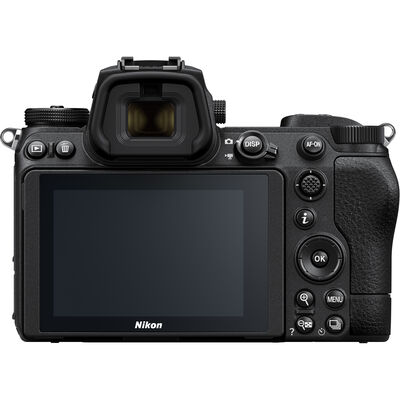
- A large 3.2″ 2.1m-dot LCD screen is available for bright, clear, and vivid image playback and live view shooting. The screen has a tilting design to benefit working from both high and low angles, and it is also a touchscreen for more intuitive operation, navigation, and settings control.
- A 3.6m-dot OLED electronic finder is present for comfortable eye-level viewing. It has a high 0.80x magnification and uses NIKKOR optics to guarantee a sharp, clear image. The finder also has a fluorine coating for easier cleaning.
- The top panel of the Z7 II is configured with a dot-matrix OLED. This low-energy display provides quick access to important camera settings.
- Configured with one CFexpress Type B/XQD memory card slot and one UHS-II SD card slot, flexible file storage is possible with the option to use repetitive, overflow, or segregated storage methods.
- A robust magnesium alloy chassis is both dust- and weather-resistant to benefit working in harsh climates and inclement conditions.
- The ergonomic grip and overall form factor is shaped to benefit handling for extended periods of time and is further accentuated by an anti-slip material and a joystick for seamless settings and focus point selection.
- Built-in SnapBridge connectivity to enable seamless transfer of low-resolution imagery as well as remote shooting capabilities. BLE (Bluetooth Low Energy) and Wi-Fi enables communication between the camera and a smart device and, additionally, the mobile device can remotely trigger the shutter and display a live view image from the camera to enable working from a distance. Additionally, SnapBridge can also be used as an easier method of updating the camera’s firmware.
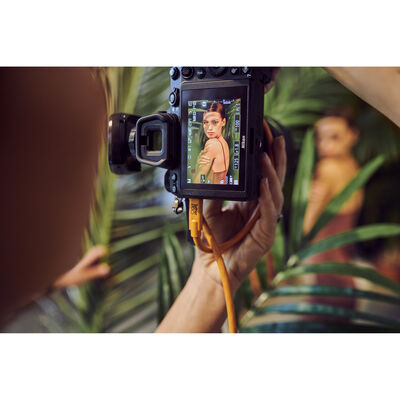
- Portrait Impression Balance items have been added to the PHOTO SHOOTING MENU and MOVIE SHOOTING MENU
- The monitor now shows the shooting display while tilted when On is selected for Image review in the PLAYBACK MENU
- Custom Setting f4 (Aperture lock) in the CUSTOM SETTING MENU now available when an FTZ mount adapter is attached
- The flash-ready light on SB-5000 flash units will light if a WR-R10 or WR-R11b is used for wireless remote flash photography
- Fixed: Focus would normally remain locked if the AF-ON button was kept pressed while the shutter-release button was used to take a series of pictures, the camera would refocus without input from the AF-ON button
- Fixed: Custom Setting a6 (AF activation) in the CUSTOM SETTING MENU set to AF-ON only with Enable selected for Out-of-focus release
- Fixed: Continuous L or Continuous H selected for Release mode
- Fixed: Single AF selected for Focus mode
- Fixed: Single-point AF selected for AF-area mode



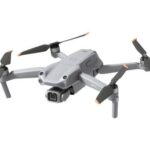 Drone & Action Camera
Drone & Action Camera



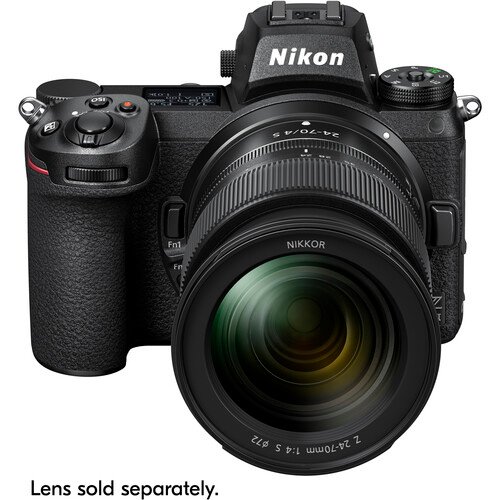

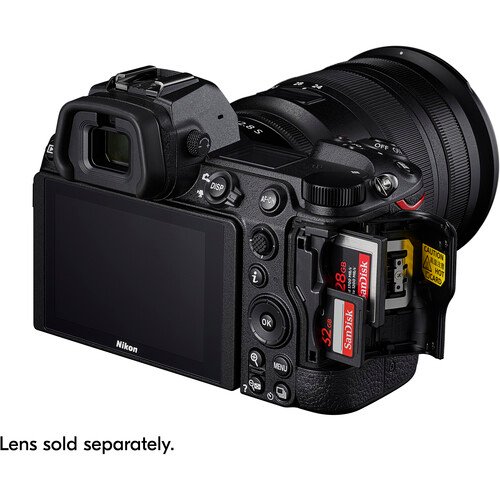
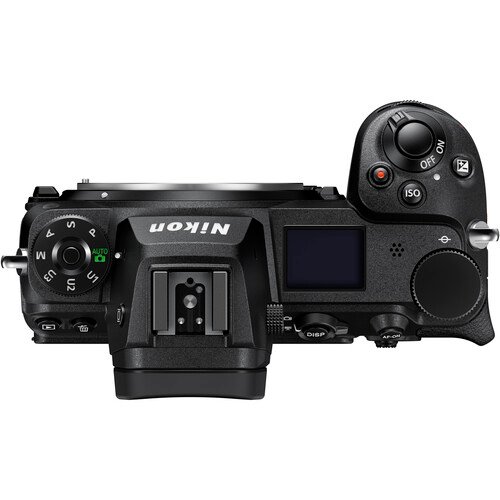
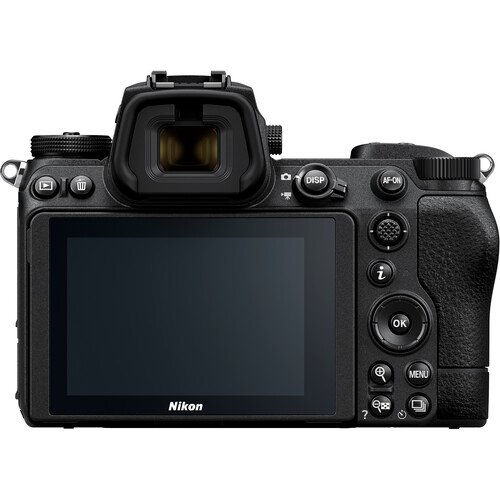

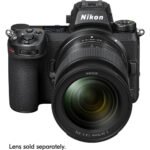
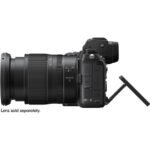
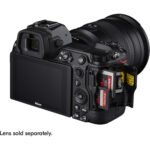

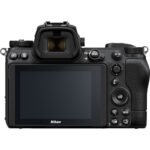
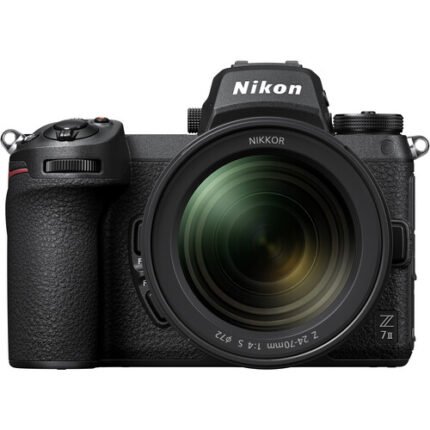











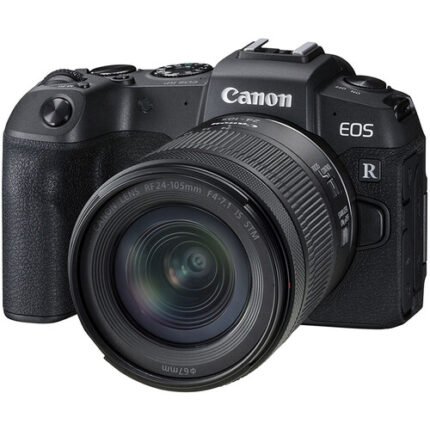

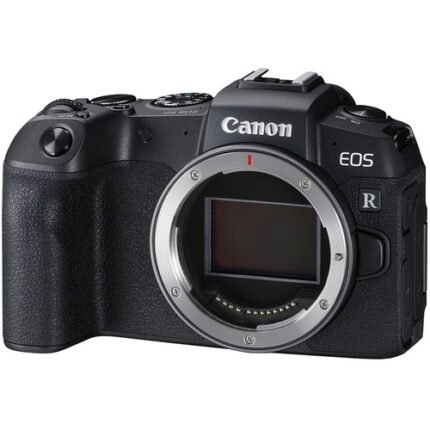
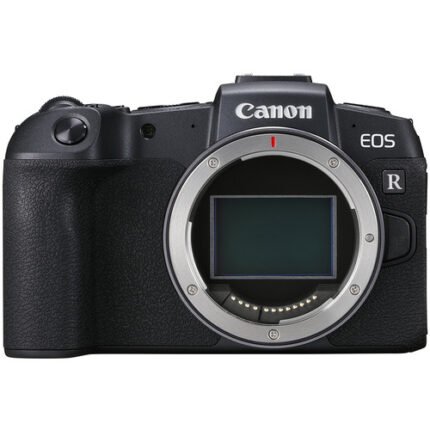

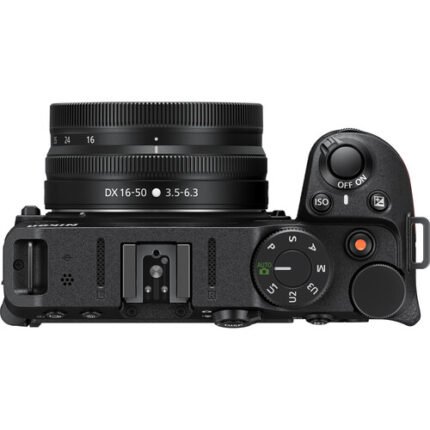
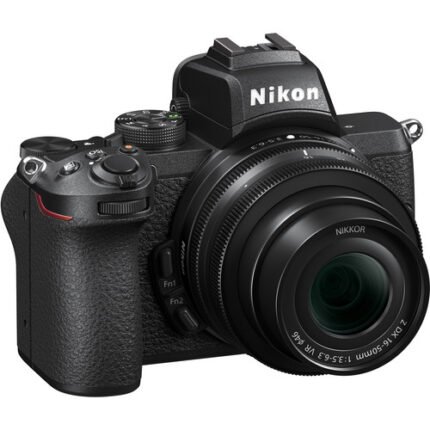



Reviews
There are no reviews yet.